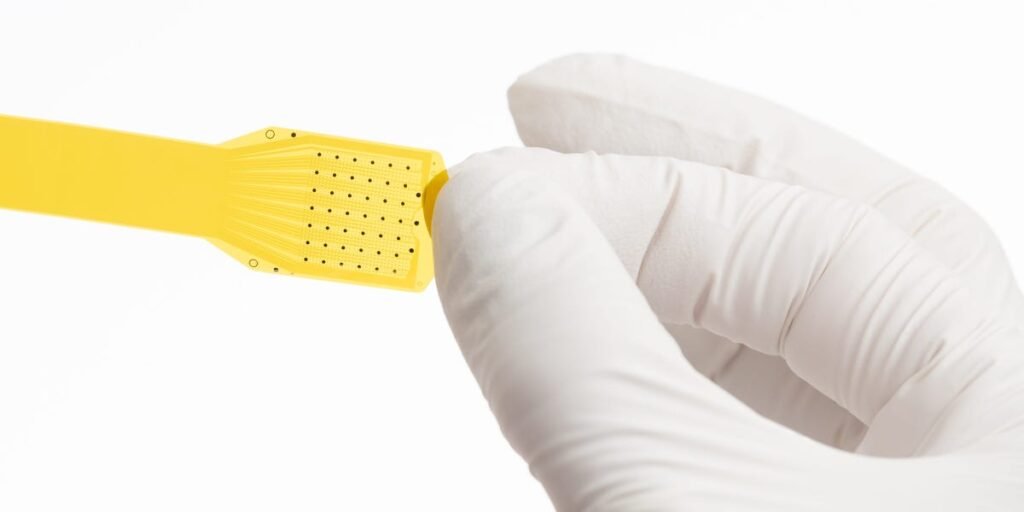The most important matter, gray matter that is, sits right at the surface.
At least that’s the line from Dr. Ben Rapoport, the founder and CEO of Precision Neuroscience, a brain-computer interface, or BCI, company.
“Many people have the impression that the data that we care about is sort of everywhere inside this dimensional structure,” Rapoport, a neurosurgeon and engineer, told Business Insider.
That’s a big misconception, he said. People often incorrectly assume that “you need electrodes that penetrate deep inside the brain to get that information out,” he added.
But brain implants don’t need to be as invasive as they might sound, he said.
Precision is developing a thin, electrode-studded film that sits on the brain and records brain activity in patients with paralysis.
Vision, movement, sensation, and executive function — all core parts of consciousness — are concentrated in the brain’s outermost layer, the cortex, Rapoport said. Deeper inside are “connections, you know, between those activities and also sort of subconscious processes, because the brain coordinates a lot of activities in the body that don’t take place consciously,” he added.
The New York-based startup, which received FDA clearance for part of its wireless brain-computer interface in April, has raised $155 million in funding since it launched in 2021. It is one of a few companies advancing this technology as part of the Implantable BCI Collaborative Community — an initiative launched by the FDA in 2024 that also includes Elon Musk’s Neuralink, Synchron, and BlackRock Neurotech.
BCIs are largely classified into two categories: invasive and non-invasive. Non-invasive BCIs, which don’t require surgery and often rely on external sensors to detect the electrical signals in the brain, have been in development for decades.
Invasive BCIs, which aim to record and stimulate brain function, represent a new frontier for technology. The buzziest BCI these days is Elon Musk’s Neuralink, which is developing a device that will be embedded in a person’s brain to record and stimulate activity. Musk’s ambitions are to create a “symbiosis” between the human brain and AI.
But there are a host of other companies working on BCIs as a way to mitigate symptoms or cure terminal diseases, like Precision Neuroscience. Over the next year, the company will prepare for the first human studies of its permanently implanted devices.
Its goal is to help paralyzed people get “back to a level of functional capacity where they can be significantly independent, economically self-sufficient, and hold a job in the workplace,” Rapoport said.
And getting the data for that doesn’t have to be as complicated as, well, brain surgery.
Read the full article here


